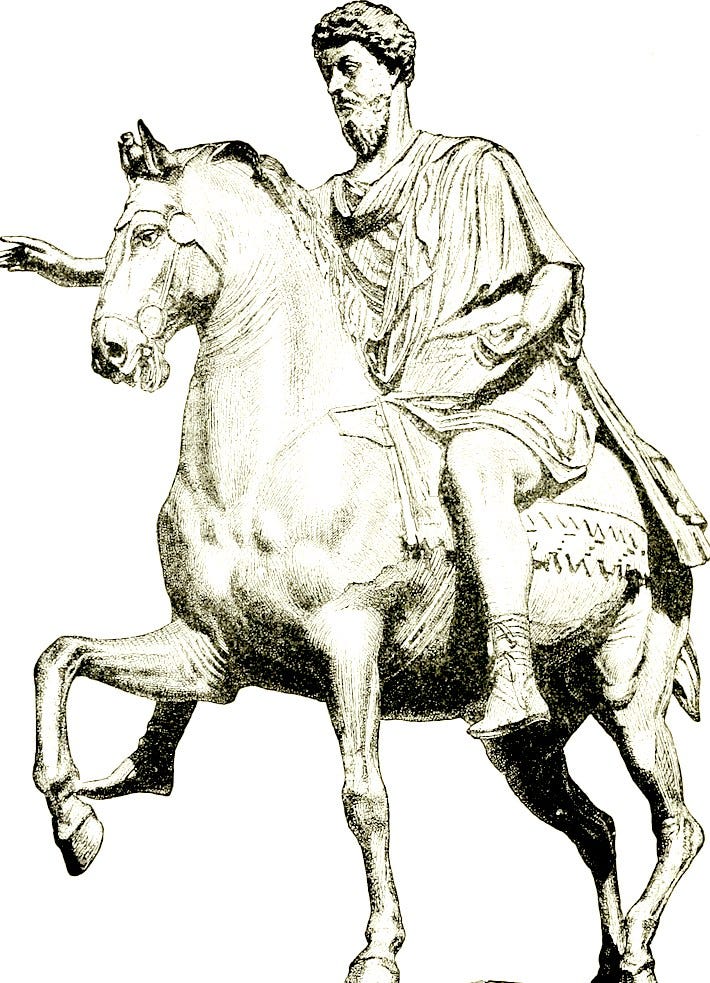Dear Classical Wisdom Kids,
Thanksgiving is one of my all time favorite holidays. I love the food, the focus on the family and getting together... but most of all, I love the actual “thanks” in it.
While Thanksgiving didn’t have any direct equivalents in ancient Greece or Rome, both had festivals and celebrations dedicated to giving thanks and expressing gratitude for a good harvest or other blessings... something I think we can all get behind.
In ancient Greece, for example, there was the festival of Thesmophoria, dedicated to Demeter, the goddess of agriculture, which celebrated the fertility of the earth. This was actually a women’s only holiday (sometimes on pain of death!) but it included a wide range of rituals and festivities to ensure the abundance of crops.
Later on in ancient Rome, there were various agricultural festivals that involved giving thanks for the harvest. The most notable was the Roman festival of Cerelia, dedicated to Ceres, the goddess of agriculture. The festival included feasting and ceremonies to honor Ceres and seek her blessings for a bountiful harvest...and included the very important theme of gratitude... specifically for the crops.
While today we don’t really need to start singing and dancing in honor of the abundance found at Trader’s Joe (though perhaps that would be a lot of fun?), the overall idea of taking time to appreciate what we have is extremely important - for both children and adults alike.
Indeed, practicing how to be grateful contributes to emotional and social development, promotes a positive mindset, and lays the groundwork for a more fulfilling and well-rounded life... Oh, and it builds empathy, resilience, social skills while reducing materialism and stress (just to name a few more benefits).
So yeah... we reckon it’s a good skill to work on! ;-)
As such, whether or not you are celebrating Thanksgiving this, please enjoy today’s lesson on ancient philosophy and gratitude, or in-depth “Go Further” section, as well as some great exercises and activities to help instill this absolutely essential thanks-giving ability.
Finally, if you don’t remember Marcus Aurelius, take a moment to refresh yourself (and the kids) on the philosopher king and the four Stoic virtues here:
All the best,
Anya Leonard
Founder and Director
Classical Wisdom and Classical Wisdom Kids
P.S. Don’t forget to register for our upcoming Stoicism for Kids Event! Taking place December 12th at Noon EST - you can save your spot here:
The Philosophy of Thanks
The ancient Greeks and Romans knew that being thankful is a very important part of being a good person... and that we should practice how to be grateful everyday.
Marcus Aurelius, the Roman Emperor and Stoic philosopher, was one such man. He wrote down his thoughts on his life and how to be a good man everyday in his journal. Even though it was a private diary, these notes were eventually printed into a book, called "Meditations."
He begins the book by listing all the people he is thankful for... and then he draws on all the lessons from the philosophy of Stoicism to help him be more grateful. This helped him become a better person... and a better Emperor!
But how can Stoicism teach us to be thankful?
One of the ideas from this ancient philosophy is that we should be grateful for the present moment. That’s like stopping right now and thinking about all the things you are thankful for. A lot of times we get caught up in our busy lives or we worry... it’s really important to stop and take note of what you have. Often, we quickly realize we have more than we thought!
Did you stop and think? What are you thankful for?
It’s also important to remember what you have control over - and to be okay with things outside of your control. Marcus said:
"Very little is needed to make a happy life; it is all within yourself, in your way of thinking."
Happiness is not up to others... what matters more is what you think and your perspective. It’s important to be happy with what you have and to think about the things that upset you with reason. Often you can find more happiness by first realizing what you are grateful for.
"He who follows reason in all things is both tranquil and active at the same time, and also cheerful and collected."
So we should all try to live a balanced life and we can do this by first practicing gratitude for what we have.
Let Little Readers Read:
Download the printable PDF here so your kids can practice reading out loud. Go over the story before going through the gratitude exercises below.
Keep reading with a 7-day free trial
Subscribe to Classical KIDS to keep reading this post and get 7 days of free access to the full post archives.





![[Video] Marcus Aurelius & the 4 Stoic Virtues](https://substackcdn.com/image/fetch/$s_!fzU9!,w_140,h_140,c_fill,f_auto,q_auto:good,fl_progressive:steep,g_auto/https%3A%2F%2Fsubstack-post-media.s3.amazonaws.com%2Fpublic%2Fimages%2F1fc71bcc-b421-45e4-8e4c-3d64154ac9be_352x512.jpeg)
